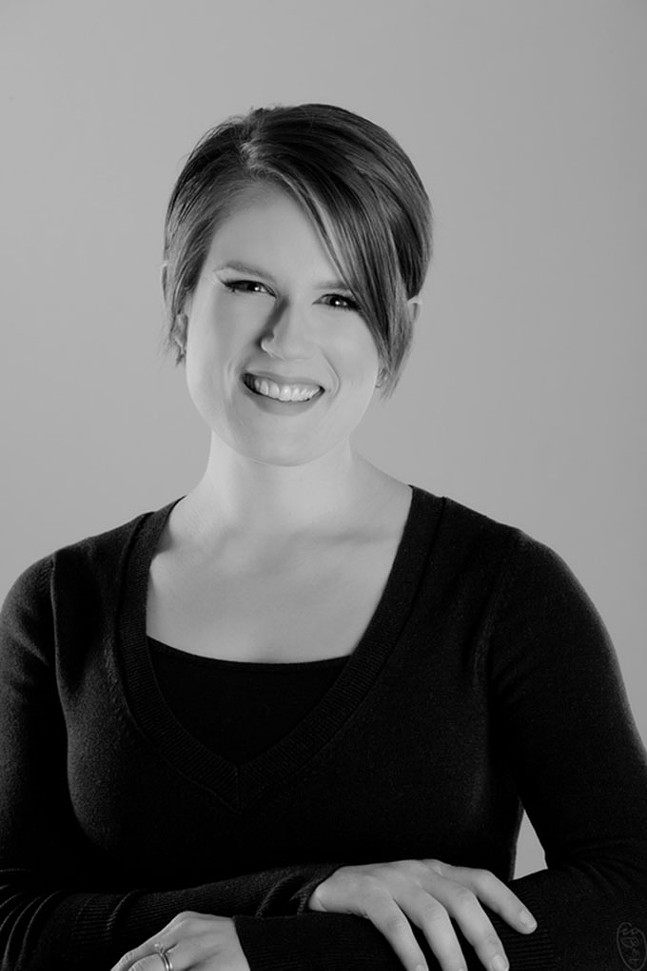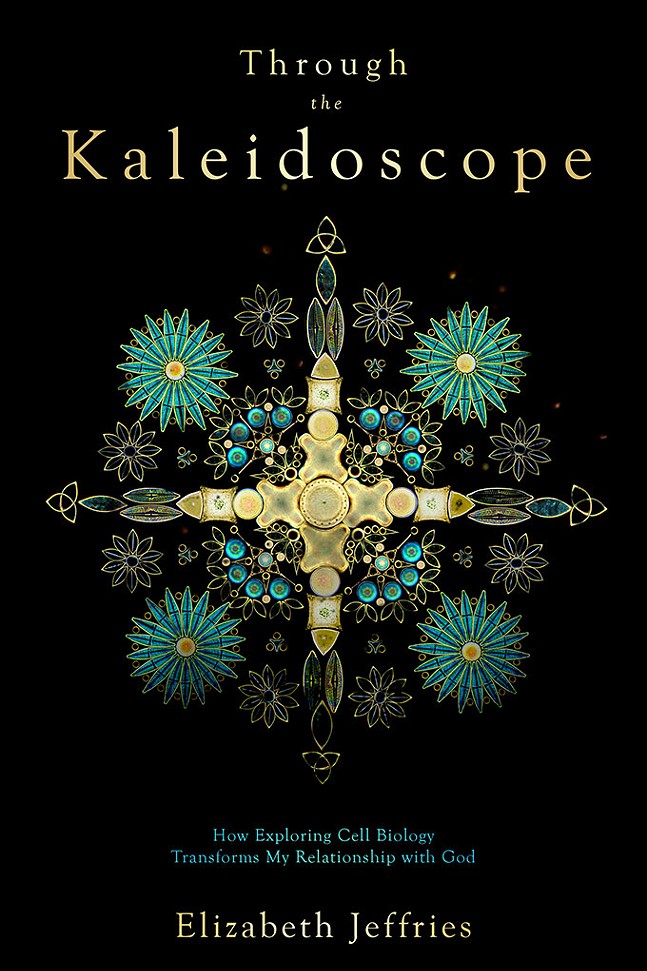How author Elizabeth Jeffries reconciled her relationship with Christianity and science
Elizabeth Jeffries grew up in a strict evangelical family in which almost every action was guided by the bible. Her social life, her hobbies, and even her diet were determined by an evangelical community.
“[They] taught me my vocabulary, my ways of thinking, and my ways of behaving,” she writes in Through the Kaleidoscope: How Exploring Cell Biology Transforms My Relationship with God (Epiphany).
When the North Side resident started to study cellular biology in college, her relationship with Christianity became “complicated.” The stories and narratives she grew up with are still deeply ingrained in her consciousness, but “I've had to deconstruct a lot of that in order to navigate the world as an adult,” she says.
"But even with this complicated love/hate relationship with Christianity, you see a lot of Christian principles [in the world] about community, about lifting each other up, about the oneness we that all share. I also see in nature, having studied biology, the power of diversity — this drives at the heart of [the] kaleidoscope image in the book. When there are multiple images you see through a kaleidoscope, diversity only enhances the beauty.”
Exposure to pop culture was limited during Jeffries’ childhood, but one icon seemed to affirm her religious training. Jeffries writes, “Britney Spears' lyrics told me a boyfriend would be all I'd ever need.”
Her parents promoted a similar principle: Her faith would be affirmed through marriage and obedience to a Christian man.
“A big part of our church's structure was gender roles,” Jeffries says. “It wasn't something that I was taught, it was just something that I always knew. It was in the water that we drank. It was very pervasive in our community. I knew very few adult women whose identities were not bound up in their husband's identities.”
In cellular biology, Jeffries found a counterpoint to the strictures of her religious teaching with facts that seemed irrefutable. Until then, anything at odds with the bible or creationist theory was rejected without question. Evolutionary science was a lie and it was sinful to believe in a world that wasn't based on biblical scholarship. Cellular biology and its imperfections provided Jeffries with permission to be human, fallible.
“Imperfection is baked into nature,” she says. “And not only is it baked in, it's a mechanism for creatively and sensitively addressing and working with that imperfection. … Danger is all around, risk is all around, in things that will damage ourselves. So the point is not to maintain perfection, but to address [imperfection]: We have this damage, but how are going to continue our important work in this world?"
“[They] taught me my vocabulary, my ways of thinking, and my ways of behaving,” she writes in Through the Kaleidoscope: How Exploring Cell Biology Transforms My Relationship with God (Epiphany).
When the North Side resident started to study cellular biology in college, her relationship with Christianity became “complicated.” The stories and narratives she grew up with are still deeply ingrained in her consciousness, but “I've had to deconstruct a lot of that in order to navigate the world as an adult,” she says.
"But even with this complicated love/hate relationship with Christianity, you see a lot of Christian principles [in the world] about community, about lifting each other up, about the oneness we that all share. I also see in nature, having studied biology, the power of diversity — this drives at the heart of [the] kaleidoscope image in the book. When there are multiple images you see through a kaleidoscope, diversity only enhances the beauty.”
Exposure to pop culture was limited during Jeffries’ childhood, but one icon seemed to affirm her religious training. Jeffries writes, “Britney Spears' lyrics told me a boyfriend would be all I'd ever need.”
Her parents promoted a similar principle: Her faith would be affirmed through marriage and obedience to a Christian man.
“A big part of our church's structure was gender roles,” Jeffries says. “It wasn't something that I was taught, it was just something that I always knew. It was in the water that we drank. It was very pervasive in our community. I knew very few adult women whose identities were not bound up in their husband's identities.”
In cellular biology, Jeffries found a counterpoint to the strictures of her religious teaching with facts that seemed irrefutable. Until then, anything at odds with the bible or creationist theory was rejected without question. Evolutionary science was a lie and it was sinful to believe in a world that wasn't based on biblical scholarship. Cellular biology and its imperfections provided Jeffries with permission to be human, fallible.
“Imperfection is baked into nature,” she says. “And not only is it baked in, it's a mechanism for creatively and sensitively addressing and working with that imperfection. … Danger is all around, risk is all around, in things that will damage ourselves. So the point is not to maintain perfection, but to address [imperfection]: We have this damage, but how are going to continue our important work in this world?"















